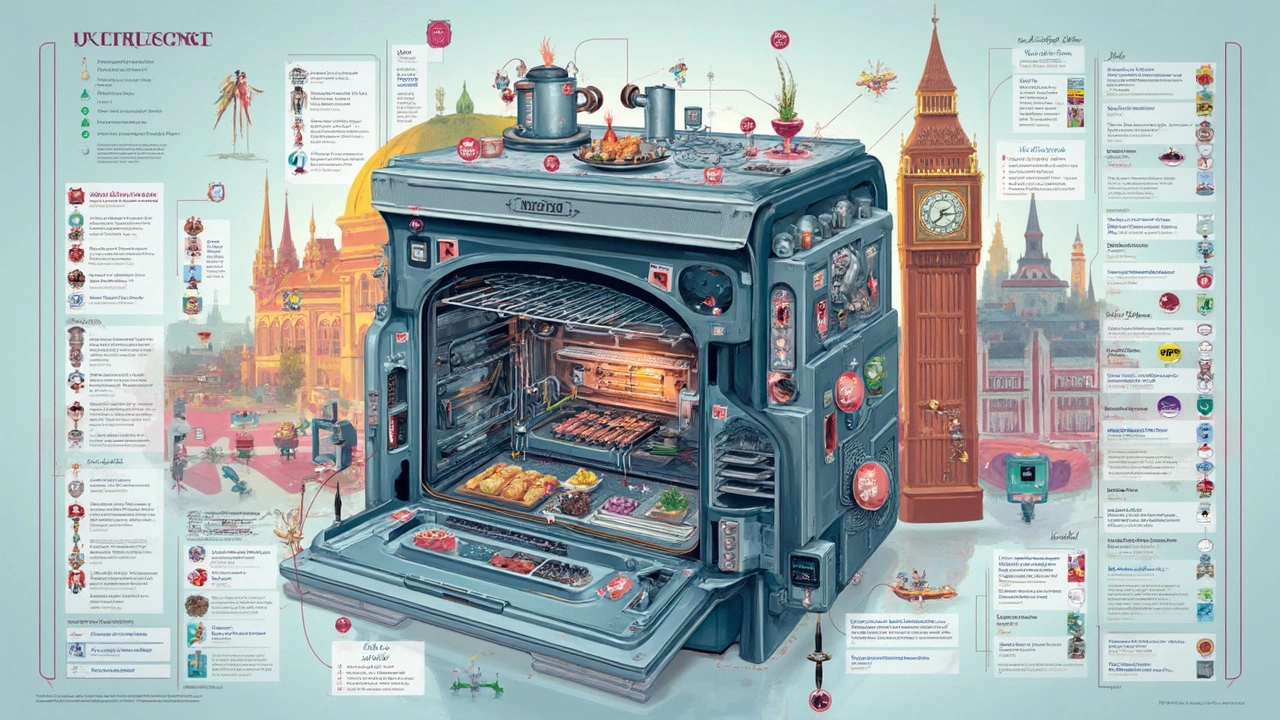So, you're staring down your trusty 15-year-old electric oven, wondering if it's worth fixing. We've all been there, and it's not just a matter of money. It's about making the right choice for your home and lifestyle. This old buddy has served up countess lasagnas and Christmas cookies with love, but now it's showing its age.
First off, let's talk about repair costs. A 15-year-old oven might start showing signs of wear and tear, like a faulty thermostat or stubborn control panel. Repairs could get pricey, sometimes nearing the cost of a new model. Before any decisions, look up local repair services for a ballpark figure.
Next, think about energy efficiency. Older ovens might not meet today's energy standards, meaning they could be running up your electric bills without you even knowing. Newer models are often more eco-friendly, offering savings that add up over time.
- Evaluating Repair Costs
- Consider Energy Efficiency
- Safety and Reliability
- Maintenance Tips for Longevity
Evaluating Repair Costs
When deciding whether to repair your trusty 15-year-old electric oven, the first thing you need to weigh is the repair costs against buying a new one. Ovens don’t come cheap, and neither do repairs, so let’s break down what you should consider.
Cost of Common Repairs
Some issues might be simple fixes while others demand more attention. Here are a few common problems and what they might cost you:
- Thermostat Replacement: If your oven struggles to maintain temperature, a new thermostat might be in order. This fix can range from $100 to $150.
- Heating Element: Heating elements wear out, leading to undercooked meals. Replacing one could set you back $150 to $200.
- Control Panel: A malfunctioning control panel can cause a headache. Expect to pay up to $300 for repairs here.
It’s essential to get quotes from a few local repair shops to avoid getting overcharged.
Weighing Repair Versus Replacement
Now, let’s talk replacement. A new entry-level electric oven starts around $400, but prices easily climb upwards of $1,000 for modern features and better energy efficiency. So, if repairs cost more than half the price of a new oven, buying new might be the smartest choice.
If you regularly splurge on specific brands or need features like convection or self-cleaning, factor those into your financial comparison too.
Future Service Needs
Don't forget about ongoing maintenance. Older appliances tend to need more love as parts age. A repair today could mean another in a few months for different components because, well, it's just getting old.
Here's a little rule of thumb: If your oven’s repair bill exceeds 50% of its replacement cost and you expect more issues, the smart money might be on upgrading instead.
Is it Worth It?
Sit down, math things out, and don’t rush your decision. We all want to save a buck, but if constant repairs mean you're missing out on improved performance and energy savings, a new oven may pay off in the long run. When in doubt, consult with a technician about the condition of your oven and its future prospects.
Consider Energy Efficiency
When thinking about whether to repair your old oven, energy efficiency is a biggie. Back when your oven was a hot new buy, energy-saving technology wasn't quite the priority it is today. If you’re watching those utility bills skyrocket, it's likely that your old oven could be a culprit.
Outdated Technology
Electric ovens from 15 years ago are likely less efficient than today’s models. The technology has come a long way, with modern ovens using up to 20% less energy. That’s not just a small change; in the long run, it's a lot of money staying in your pocket!
Energy Star Ratings
Look for newer models with an Energy Star rating. They follow strict guidelines set by the US Environmental Protection Agency and the Department of Energy. These bad boys are designed to not only save energy but also cut down your electric bills, sometimes up to 150 dollars a year!
Cost vs Savings
Weigh the repair costs against potential savings. Fixing an old component might seem cheaper upfront, but when you consider the ongoing cost of inefficiency, a more energy-efficient option could quickly pay for itself. Imagine saving 150 dollars annually just by upgrading!
Quick Tips
- Check your oven's energy consumption—your utility company can help.
- Consider investing in an Energy Star model for significant savings.
- Consult online calculators to compare energy usage and potential savings.
In the end, consider whether those energy savings make a new oven a better choice than repairs. It’s a balance between nostalgia and being practical, right?

Safety and Reliability
When it comes to your old electric oven, safety and reliability are crucial. After 15 years, wear and tear could compromise these aspects. Most electric ovens are considered safe appliances, but aging components can lead to hazards, especially if not properly maintained.
Check for Warning Signs
Look out for symptoms of potential issues like strange smells, uneven heating, or unusual noises. These can indicate underlying problems that might pose safety risks.
Trust the Experts
It might be wise to have an electrician or professional technician take a look if you're wary. As Dr. Emily Larson, a well-respected appliance expert, once said,
"Regular maintenance and inspections are vital to ensuring the longevity and safety of any appliance."
Don't overlook corrosion or frayed cords, as they could easily lead to electrical fires. Routine checks can catch these red flags before they escalate.
Importance of Technology Updates
Modern ovens offer advanced safety features unavailable in older models. Consider if your 15-year-old oven lacks vital technology advances like automatic shut-off or child locks. If your electric oven has become unreliable, be honest about whether an upgrade is sensible.
Make Safe Decisions
Balancing the cost of repairs against enhanced safety features of a new model is essential. It’s not just about longevity but peace of mind too. Remember, a reliable oven is always better than a risky one.
Maintenance Tips for Longevity
Keeping your electric oven ticking along for well beyond its years is all about smart maintenance. You might think it's as simple as running a cleaning cycle now and then, but there's a bit more to it. These handy tips might save you a few headaches and unexpected repair bills.
Regular Cleaning is Key
A clean oven is an efficient electric oven. Wipe down the interior and racks with a mixture of baking soda and water to tackle stubborn stains and spills. Try to avoid harsh chemicals as they can damage the surfaces and leave residues that might affect food safety.
Check the Heating Elements
Heating elements are like the heart of your oven, so keep an eye on them. Look for any unusual signs like uneven cooking, and inspect for visible damage. If a heating element is going out, it might be time for a replacement. Catching it early can prevent major breakdowns.
Inspect Door Seals and Gaskets
Air leaks can make your oven work harder, consuming more energy. Make sure door seals and gaskets are intact and cleaning them regularly. If you notice a tear or worn-out spot, replacing them is usually straightforward and makes a big difference.
- Electric oven repair experts suggest checking seals every three months.
- Use a soft cloth for cleaning the seals.
- If they feel loose, a small adjustment with a screwdriver can help.
Monitor the Thermostat
Got a feeling that your baked goodies are over or underdone? It might be time to calibrate the thermostat. Use an oven thermometer to check if the temperature matches the settings. It’s a simple trick that can save you from culinary disasters!
Take Care of the Control Panel
Over time, the control panel can become unresponsive due to grease buildup or electrical issues. Regularly wipe it down and ensure no buttons are stuck. If the display starts glitching, consulting an appliance repair technician might be wise.
Statistics on Oven Lifespan
| Brand | Average Lifespan (Years) |
|---|---|
| Top-tier brands | 15-20 |
| Average brands | 10-15 |
By incorporating these maintenance routines, your trusty oven can stay in top shape. Knowing when to call professionals and when to DIY can also extend the life of your appliance. Remember, a little attention goes a long way!


